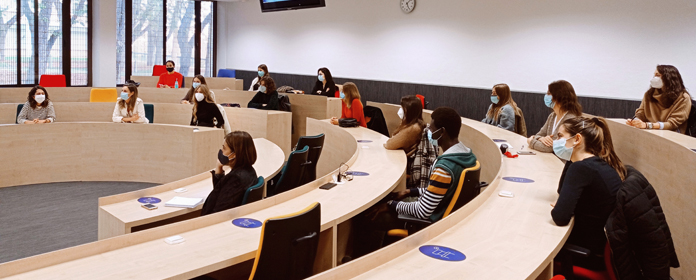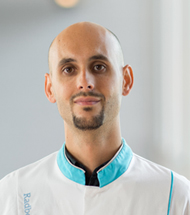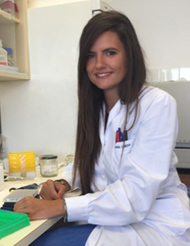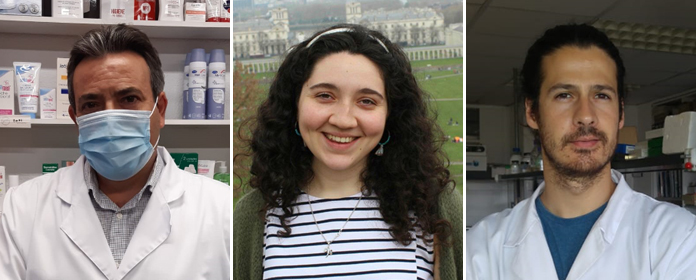An international congress in Paris awards the oral communication of a work on nanoparticles and childhood cancer.
Carlos Rodríguez Nogales, graduate of Master's Degree MIDI '15, performs the doctorate in the department of Pharmacy and Pharmaceutical Technology under the direction of María Blanco.
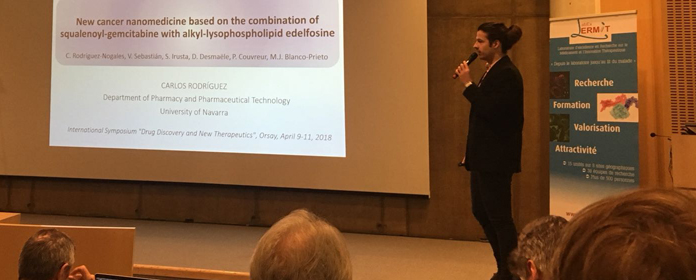
PHOTO: Courtesy
The project of doctorate developed by Carlos R odríguez Nogales, graduate of theMaster's Degree University in research, development and Innovation of Medicines'15, in the department of Pharmacy and Pharmaceutical Technology of the University of Navarra -under the direction of Professor María Blanco Prieto- could be an alternative to conventional chemotherapy to treat pediatric tumors, based on the use of nanoparticles. This was presented by the future Doctor of Pharmacy last April at the event Drugdiscovery and new therapeutics: International symposium of Paris-SaclayUniversity, held in Paris, where he received the award for the best oral communication.
The international event hosted 4 plenary talks, 25 oral communications and 55 posters. And among the invited guests was MIT professor Robert Langer, considered the father of the use of drug delivery systems.
In this context, Carlos Rodriguez made his presentation on the development of a new nanomedicine subject "that combines two types of antitumor drugs and is framed in the search for therapeutic improvements in the treatment of pediatric cancer through the use of nanomedicine. "So far," adds its author, "we have formulated a nanomedicine based on the combination of two antitumor drugs using a cutting-edge technology developed by the group of Professor Patrick Couvreur (co-director of my thesis ) at the Paris-Sud University. The great advantage of this development is that both drugs are able to self-assemble and form nanoparticles".
"In addition," he continues, "the methodology employed is simple and reproducible. This results in a controlled and targeted release of these drugs in the tumor and, as a consequence, in a considerable increase in their efficacy.
Improving tolerance and decreasing toxicity in childhood cancersThe good results obtained so far have encouraged the doctorate student and the department team at School of Pharmacy and Nutrition to test these nanoparticles in animal models that reproduce pediatric cancers.
"The goal we are pursuing is to introduce into current therapeutic protocols the application of nanomedicines in the treatment of childhood cancer. We believe that nanomedicine represents a solid alternative to conventional chemotherapy, where high doses of cytostatic drugs are poorly tolerated and carry an increased risk of toxicity in the pediatric population," warns the future doctor.

